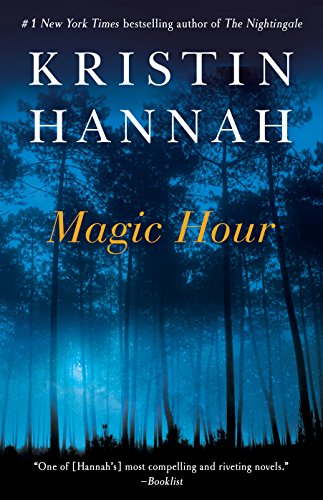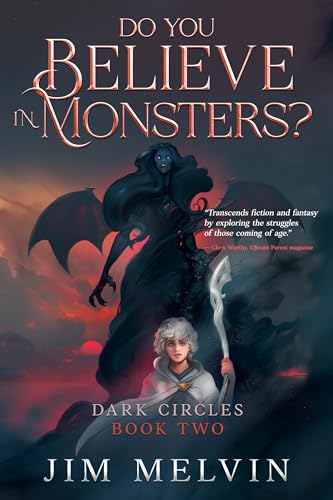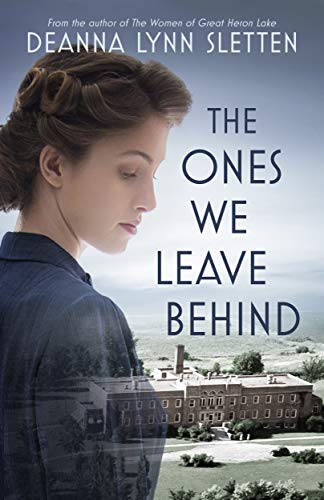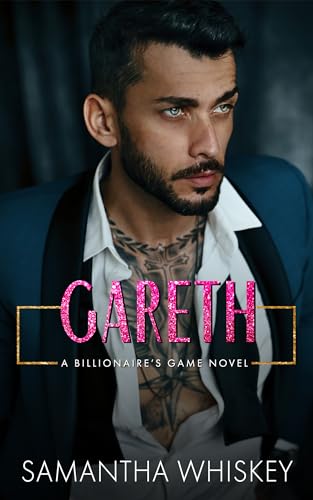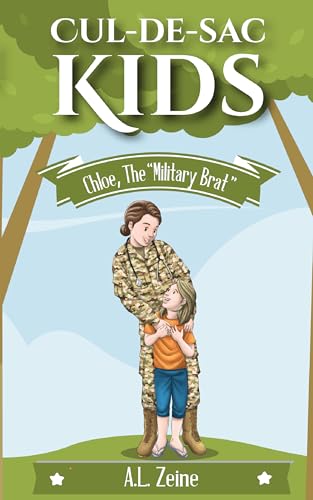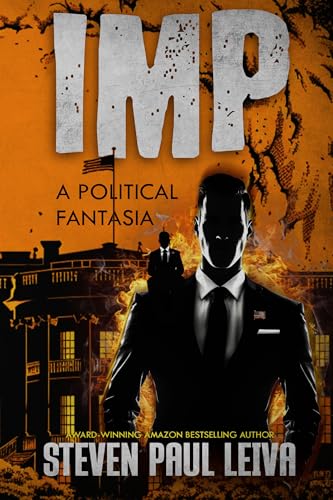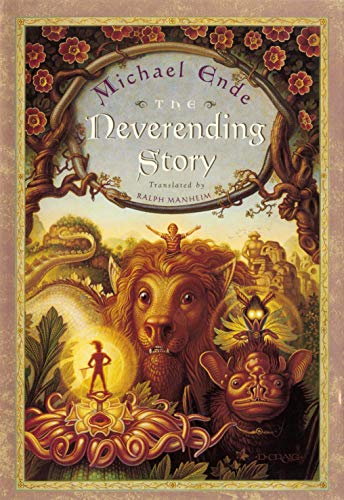A sexy, smartly written paranormal romance by the always surprising Ann Gimpel…
“…a fantastic read…Ann Gimpel is now on my favorite authors list…”
When the beautiful and gutsy witch Colleen meets the gorgeous Sidhe Duncan, their powerful demon-hunting magic is matched only by the undeniable magnetism between them…
Don’t miss Witch’s Bounty while it’s 50% off the regular price!
by Ann Gimpel
4.5 stars – 31 Reviews
Text-to-Speech and Lending: Enabled
Here’s the set-up:
A demon-stalking witch teams up with a Sidhe, but their combined power, never mind their love, may be too late to make a difference.
One of only three remaining demon-stalking witches, Colleen is almost the last of her kind. Along with her familiar, a changeling spirit, she was hoping for a few months of quiet, running a small magicians’ supply store in Fairbanks, Alaska. Peace isn’t in the cards, though. Demons are raising hell in Seattle. She’s on her way out the door to help, when a Sidhe shows up and demands she accompany him to northern England to quell a demon uprising there.
Duncan swallowed uneasy feelings when the Sidhe foisted demon containment off onto the witches two hundred years before. He’s annoyed when the Sidhe leader sends him to haul a witch across the Atlantic to bail them out. Until he sees the witch in question. Colleen is unquestionably the most beautiful woman he’s ever laid eyes on. Strong and gutsy, too. When she refuses to come with him, because she’s needed in Seattle, he immediately offers his assistance. Anything to remain in her presence.
Colleen can’t believe how gorgeous the Sidhe is, but she doesn’t have time for such nonsense. She, Jenna, and Roz are the only hedge Earth has against being overrun by Hell’s minions. Even with help from a powerful magic wielder like Duncan, the odds aren’t good and the demons know it. Sensing victory is within their grasp, they close in for the kill.
5-star praise for Witch’s Bounty:
“…a potent combination of intrigue, action, passion, and mythology. An outstanding fiction cornucopia…”
“…kick-ass demon-hunter warriors [with] attitude and sarcasm in spades….fast-moving with plenty of action…paranormal with a side of erotica…”
an excerpt from
Witch’s Bounty
by Ann Gimpel
Copyright © 2014 by Ann Gimpel and published here with her permission
Witches’ History Primer
…In the beginning, Ceridwen bent over her cauldron, stirring up the world. Sometimes the other Celts helped, but mostly they left her alone because she was so ill-tempered. She created witches somewhere between Sidhe, dark fae, and Druids—borrowing a pinch of this, and a bit of that, to give them an eclectic mix of magic.
Gwydion dropped by one day and leaned over her shoulder, peering into the large, black pot. “You’ve made the witches far too powerful,” he complained.
Ceridwen shrugged. She pulled her staff out of the sludge simmering before her, dark eyes flashing dangerously. “Do you want this job?”
The master enchanter shook his head. Blond hair wafted in steam from the cauldron. “No, but you’ll rue the day you didn’t temper their magic.”
The goddess narrowed her eyes. “Does Bran, god of prophecy, know you’ve taken over his job?”
Gwydion bristled. “Damn my eyes, woman, you’ve made witches as strong as the Sidhe.”
She got to her feet, faced the other god, and thumped his chest with her forefinger. “One day we may need that strength.”
Gwydion looked as if he wanted to say something. Instead, his broad-shouldered form shimmered and disappeared.
“Hmph. Good riddance.” Ceridwen sank into a cross-legged sit next to her cauldron and went back to stirring. She’d die before admitting this to the other Celtic gods, but out of all her creations, witches were her favorite…
�Chapter One
Rain worsened from a steady drizzle to a pounding, punishing deluge of icy sleet. Colleen Kelly strengthened the spell around herself. It sizzled where it ran up against the droplets. At least she wasn’t quite as soaked as she would have been without its protection. Pavement glistened wetly in the last of the day’s light. It was just past three in the afternoon, but December days were short in the northern latitudes and Fairbanks was pretty far north.
“At least it’s not snowing,” she muttered as she pushed through a nearby glass-fronted door into the magicians’ supply store she owned with two other witches in the older part of downtown. Bells hanging around the door pealed discordantly. She sent a small jolt of magic to silence them.
“I heard that. Not the bells, but you. It’s supposed to snow this time of year. How could you possibly be pleased the weather patterns have gone to hell?” Jenna Neil stalked over to the coatrack where Colleen stood. Blonde hair, hacked off at shoulder level, framed a gamine’s face and shrewd, hazel eyes. Jenna towered over Colleen’s six foot height by a good four inches; her broad shoulders would have made most men jealous. Between her trademark high-heeled boots, and a scruffy embroidered red cloak tossed over skintight blue jeans, she looked as exotic as the anti-hex hoop earrings dangling from each ear.
Colleen rolled her eyes, shook out her coat, and hung it on the rack. “Spare me your lecture about global warming, okay? It’s cold enough to snow. It just isn’t, for some reason.”
“Mmph.” The line of Jenna’s jaw tensed.
Indian spices wafted through the air, mingling with the scents of herbs, dried flowers, and desiccated body parts from small animals. Colleen’s stomach growled. Breakfast had been at six that morning—a long time ago. Pretty bad when even dried newt smelled like food. “Did you cook something? And if you did, is there any left?”
A terse nod. Jenna turned away, walking fast. Colleen lengthened her normal stride to catch up. “Hey, sweetie. What happened? You can’t be in this big a snit over the weather.”
Jenna kept walking, heading for the small kitchen at the back of the store. “A lot of things. I was just having a cup of tea. Shop’s been dead today.” She disappeared behind a curtain.
Colleen glanced over one shoulder at the empty store. A phalanx of bells around the door would alert them if anyone stopped in. The minute she tugged the heavy, upholstery fabric that served as a kitchen door aside, the pungent tang of Irish whiskey made her eyes water. “You said tea.”
“Yeah, well I spiked it.”
Colleen grunted. “Smells like you took a bath in booze. What the fuck happened?” She grabbed the larger woman and spun her so they faced one another.
“We got another pay-your-tithe-or-die e-mail from our Coven.” Jenna’s nostrils flared in annoyance.
“So? That’s like the tenth one.” There were new policies none of them agreed with, so they’d joined with about twenty other witches and stopped paying the monthly stipend that supported their Coven’s hierarchy.
“It’s not what’s bothering me.” Jenna pulled free from Colleen, tipped her cup, and took a slug of what smelled like mostly liquor.
Colleen fought a desire to swat her. Getting to the point quickly had never been one of Jenna’s talents. She clamped her jaws together. “What is?”
“Roz called with…problems.” Jenna turned and started toward the steep staircase ladder leading to her bedroom above the shop.
“You can’t just drop that bomb and leave.” Colleen made another grab for Jenna to keep her in the kitchen. Worry for their friend ate at her. Of the three of them, Roz was usually the most volatile. “What happened? I thought she was in Missouri, or maybe it was Oklahoma, visiting that dishy dude she met online.”
“Didn’t work out.” The corners of Jenna’s mouth twisted downward. Colleen quirked a brow, urging her friend to say more. “He only wanted her for her magic. Turned out he preferred men.”
“Aw.” Colleen blew out a breath. “She must have been disappointed.”
Half a snorting laugh bubbled past Jenna’s lips. “Maybe now she is. At the time, furious would have been closer to the mark.”
Colleen’s throat tightened. “Shit! What’d she do?”
“Turned him over to the local Coven.”
“Thank God!” Colleen let go of Jenna and laid a hand over her heart. Roxanne Lantry was more than capable of killing someone who’d pissed her off. It was how she’d ended up in Alaska. Roz hadn’t exactly been caught when her cheating husband and his two girlfriends went missing, but she hadn’t stuck around to encourage the authorities to question her, either.
Colleen and Jenna had already left Seattle; Roz repressed her antipathy for Alaska’s legendary foul weather and joined them. Magically, she was stronger than either of them, and she had a hell of a temper.
Colleen’s stomach growled again. Louder this time. It didn’t give a good goddamn about anything other than its empty state. She pushed past Jenna to the stove, lifted a lid, and peered into a battered aluminum pot. Curry blasted her; the spicy odor stung her eyes and made her nose run. “Whew. Potent. Mind if I help myself?”
“Go ahead.” Jenna sat heavily in one of two chairs with a rickety wooden table between them. She picked up her mug and took another long swallow.
Dish in hand, Colleen slapped it on the table in front of the other chair and went in search of a mug of her own. There weren’t any clean ones, so she plucked one out of the sink and rinsed it. Back at the stove, she tipped the tea kettle. Thick, amber liquid spilled from its stubby snout into her waiting mug. Jenna waggled the whiskey bottle in her direction.
“Nah.” Colleen settled at the table. “It would go right to my head. Maybe after I get some food on board.” She tucked in. After the first few mouthfuls, when the curry powder nearly annihilated her taste buds, the pea, potato, and ham mixture wasn’t half bad.
Jenna drank steadily. When Colleen’s dish was empty, she refilled her mug with tea, filched a couple of biscuits from the cupboard, and sat back down. “Are you going to talk to me?”
“I suppose so.” Jenna’s words slurred slightly.
Colleen cocked her head to one side. “I suggest you start now, before you forget how.”
“Oh, please.” Jenna blew out a breath, showering the small space with whiskey fumes. Colleen waited. The other witch could be stubborn. Wheedling, cajoling, or urging wouldn’t work until she was good and ready to talk. Finally, after so long Colleen had nearly chewed a hole in her cheek, Jenna finally muttered, “Roz called.”
Colleen ground her teeth together. “You already said that. It’s how you knew what happened with the guy.”
Jenna nodded. “There’s more.” She picked up the whiskey, started to pour it into her mug, then apparently changed her mind and drank right from the bottle. “She’s in Seattle. Checked in with Witches’ Northwest, just to say hello, and because she wanted to touch base with people she’s known for a long time.”
Another long pause. Colleen batted back a compulsion spell. It wasn’t nice to use those on your friends. She shoved her hands under her bottom to reduce the temptation.
Jenna lowered her voice until Colleen had to strain to hear. “The Irichna demons are back.”
“But our last confrontation wasn’t all that long ago. Only a few months. Sometimes when we best them, they’ve stayed gone for years.” Colleen shook her head. Even the sound of the word, Irichna, crackled against her ears, making them tingle unpleasantly. Irichna demons were the worst. Hands down, no contest. They worked for Abbadon, Demon of the Abyss. Evil didn’t get much worse than that. No wonder Jenna was drinking. Colleen held her hand out for the bottle—suddenly a drink seemed like a most excellent idea—and picked her words with care. “Did Roz actually sight one?”
“Yeah. She also asked if we could come and help. More than asked. She came as close to begging as I’ve ever heard her.”
“Erk. They have a whole Coven there. Several if you count all the ones in western Washington. Why do they need us?” Colleen belted back a stiff mouthful of whiskey. It burned a track all the way to her stomach where it did battle with all the curry she’d eaten.
Jenna just shot her a look. “You know why.”
Colleen swallowed again, hoping for oblivion, except it couldn’t come quick enough. She knew exactly why, but the answer stuck in her craw and threatened to choke her. The three of them were the last of a long line of demon stalkers, witches with specialized powers, able to lure demons, immobilize them, and send them packing to the netherworld.
When things worked right.
They often didn’t, though, which was what killed off the other demon stalker witches. It didn’t help that demons as a group had been gathering power these last fifty years or so. Witches lived for a long time, but they were far from immortal, and the demon stalking ability was genetic. She, Jenna, or Roz would have to produce children or that strain of magic would die out. So far none of them had come anywhere close to coming up with a guy who looked like husband material… Colleen looked at her hands. Even absent a husband, none of them had a shred of domesticity. Certainly not enough to saddle themselves with offspring.
“What’s the matter?” Jenna grinned wickedly, clearly more than a little drunk. “Cat got your tongue too?”
As if on cue, a blood-curdling meow rose from a shadowed corner of the kitchen and Bubba, Colleen’s resident familiar, padded forward. When he was halfway to them, he gathered his haunches beneath him and sprang to the table. It rocked alarmingly. Jenna made a grab for her cup. The large black cat skinned his lips back from his upper teeth, bared his incisors, and hissed.
“Oh, all right.” Colleen clamped her jaws tight and summoned the magic to shift Bubba to his primary form, a gnarled three-foot changeling.
The air shimmered around him. Before it cleared, he swiped the liquor out of her hand and drained the bottle.
“Would have been a good reason to leave you a cat,” Jenna mumbled.
He stood on the table and glared down at both of them, elbows akimbo, bottle still dangling from his oversized fingers. “If you’re going to fight demons, you have to take me with you.”
“No, we don’t,” Colleen countered.
“You don’t follow directions well,” Jenna said pointedly.
“Isn’t that the truth?” Colleen rotated her head from side to side, starting to feel the whiskey. At least once when they’d humored the changeling, he’d almost gotten all of them killed. Problem was she couldn’t predict when he’d follow her orders, and when he’d decide on a different tack altogether. Then there were the times his fearlessness had saved them all. Bubba might be a wildcard, but he was her wildcard.
“You forgot when I welcomed your spirit into my body, and kept it alive, while the healers worked on you.” Bubba eyed Colleen, sounding smug.
“If you hadn’t decided to play hero, and needed to be rescued, the demons wouldn’t have injured me.” Colleen winced at the sour undertone in her voice. That incident happened five years before; maybe it was time she got over it.
“Nevertheless.” He tossed his shaggy head, thick with hair as black as the cat’s. “When you conjured me from the barrows of Ireland, and bound me, we became a unit. You can’t go off and leave me here. It would be like leaving a part of yourself behind.” His dark eyes glittered with challenge.
“I hate to admit it,” Jenna sounded a little less drunk, “but he’s right.”
“See.” Bubba leered at them, jumped off the table, and waddled over to the stove with his bowlegged gait. Once there, he opened the oven, climbed onto its door, and peeked into the pot. He started to stick a hand inside.
“Hold it right there, bud.” Colleen got to her feet, covered the distance to the stove, and dished him up some of the curry mixture. “Get some clothes on and you can have this.”
He clambered down from his perch and over to several colorful canisters scattered around the house where she stashed outfits for him. Keeping Bubba clothed had been a huge problem until she’d hatched up a plan, and sewn him several pant and shirt combos with Velcro closures, since he didn’t like buttons or zippers. The changeling dressed quickly and took the bowl from her. “I could have gotten my own food.”
“Better for the rest of us if you keep your paws out of the cook pot.” Jenna stood a bit unsteadily. “I’ll be right back.”
Bubba stuffed food into his mouth with his fingers. “Where’s she going?” His words came out garbled as he chewed open-mouthed.
Colleen looked away. “Probably to pee. Maybe to throw up. Um, look, Bubba, it might be wiser if we took a quick side trip to Ireland and released you.” She glanced sidelong at the changeling spirit she’d summoned during a major demon war forty years before. He’d been truly helpful then, especially after he’d mastered English, which hadn’t taken him all that long. In the intervening time, he’d mostly clung to his feline form, eating and keeping their shop free of mice and rats. They’d lived in Seattle the first ten years or so after he joined them, relocating to Alaska to conceal their longevity. She dragged the heels of her hands down her face, feeling tired. It was getting close to time to move again, but she didn’t want to think about it.
Bubba shook his head emphatically. Food flew from the sides of his mouth. He scooped a glob off the floor and ate it anyway. “I have to agree to being released. I don’t want to go back to my barrow. I like it much better here.”
Colleen sucked in a hollow breath, blew it out, and did it again. Bubba was right. Rules were rules. He’d had a choice at the front end. He could have refused her. Witches respected all living creatures. The ones on the good side of the road, anyway. No forced servitude for their familiars, despite rumors to the contrary.
Jenna lurched back into the kitchen looking a little green. “You okay?” Colleen asked.
“Yeah. I drank too much, that’s all.” She rinsed her mug at the sink, refilled it with tap water, and sat back down. “Did you two come up with a plan?”
“I’m going.” Bubba left his dish on the floor and vaulted back onto the table.
Jenna rolled red-rimmed eyes. “That was the discussion when I left.”
“Your point?” Colleen swallowed irritation.
“Nothing.” The other witch sounded sullen, but maybe she just didn’t feel well.
“I offered to free him—” Colleen began.
“I refused,” Bubba cut in. He shook his head. “No recognition for all my years of loyal service. Tsk. You should be—”
“Stuff it.” Jenna glared at him. “We have bigger problems than your wounded ego.” He stuck out his lower lip, looking injured as only a changeling spirit could, but he didn’t say anything else.
“I suppose we have to go to Seattle,” Colleen muttered, half to herself.
“Don’t see any way around it.” Jenna worried her lower lip between her teeth.
“What exactly did Roz say?”
“We didn’t talk long. Her cellphone battery was almost dead.” A muscle twitched beneath Jenna’s eye. “She’d just stopped in at Coven Headquarters and the group mobbed her. Said we had to come. They’ve already lost about twenty witches to stealth demon attacks.”
Colleen’s heart skipped a few beats. Twenty witches was a lot. Maybe a quarter of the Witches’ Northwest Coven. “Crap. When did the attacks start?”
“Only a few days ago. They’d planned to call us, but saw it as goddess intervention when Roz just showed up.”
“Damn that Oklahoma cowboy.” Colleen pounded a fist into her open palm. “If his Coven doesn’t flatten him, I will.”
“He wasn’t a cowboy.” Jenna’s voice held a flat, dead sound. “He was supposed to be a witch. You know, like us.”
“Doesn’t matter.”
“Do you want to close things up here, or should I try to get someone from our Coven to fill in at the shop?” Jenna looked pale, but the tipsy aspect had left her face.
Colleen shook her head. “We haven’t sold enough in the last few weeks to make it worthwhile to pay someone to clerk for us.”
“Okay.” Jenna’s hazel eyes clouded with worry. “When do you want to leave?”
“If you asked Witches’ Northwest, we probably should have left three days ago.”
“How are we getting there?” Bubba squared his hunched shoulders as much as he could and eyed Colleen.
“Excellent question.” Jenna looked at Colleen too.
She put her hands in front of her face, palms out. “Stop it, you two. I can’t deal with the pressure.” Colleen clamped her jaws together and considered their options. Roz already had a car in Seattle. It didn’t make sense to drive their other one down, plus it would take too long. Flying with Bubba was impossible. He looked too odd in his gnome form and his cat form didn’t do well with the pressure changes. They had to teleport, which would seriously deplete their magic and mean they couldn’t fight so much as a disembodied spirit for at least twenty-four hours after they arrived.
Jenna screwed her face into an apologetic scowl, apparently having come to the same conclusion. “Look, I’m sorry I’m not more help. There’s something about that particular mix of earth, fire, and air that I always bungle.”
Air whistled through Colleen’s teeth. It had been so long since they’d teleported anywhere, she’d almost forgotten Jenna’s ineptitude with the requisite spell. “How about this? You go down to the basement and practice. I’ll get a few things together…”
“What do you want me to do?” Bubba asked.
“You can help me,” Jenna said. “I’ll do better if I have an object to practice with.”
The changeling scrunched his low forehead into a mass of wrinkles. “Just don’t get me lost.”
“Even if she does, I’ll be able to find you.” Colleen tried to sound reassuring. She was fond of her familiar. In many ways, he was very childlike. Heh! Maybe that’s why I’ve been so reluctant to have a kid. I already have one who’ll never grow up.
The bells around the shop door clanged a discordant riot of notes. “Crap!” Jenna shot to her feet. “I should have locked the damned door.”
“Back to cat form.” Colleen flicked her fingers at Bubba, who shrank obligingly and slithered out of clothing, which puddled around him. She snatched up his shirt and pants and dropped them back into the canister.
“I say,” a strongly accented male voice called out. “Is anyone here?”
“I’ll take care of the Brit,” Colleen mouthed. “Take Bubba to the basement and practice.”
She got to her feet and stepped past the curtain. “Yes?” She gazed around the dimly lit store for their customer.
A tall, powerfully built man, wearing dark slacks and a dark turtleneck, strode toward her, a woolen greatcoat slung over one arm. His white-blond hair was drawn back into a queue. Arresting facial bones—sculpted cheeks, strong jaw, high forehead—captured her attention and stole her breath. He was quite possibly the most gorgeous man she’d ever laid eyes on. Discerning green eyes zeroed in on her face, caught her gaze, and held it. Magic danced around him in a numinous shroud. Strong magic.
What was he?
And then she knew. Daoine Sidhe. The man had to be Sidhe royalty. No wonder he was so stunning it almost hurt to look at him.
Colleen held her ground. She placed her feet shoulder width apart and crossed her arms over her chest. “What can I help you with?”
“Colleen Kelly?”
Okay, so he knows who I am. Doesn’t mean a thing. He’s Sidhe. Could have plucked my name right out of my head. “That would be me. How can I help you?” she repeated, burying a desire to lick nervously at her lips.
“Time is short. I’ve been hunting you for a while now. Come closer, witch. We need to talk.”
Chapter Two
Duncan Regis eyed the grim-faced woman standing in front of him. She was quite striking with such stunning bone structure—high cheekbones, square jaw—she could have been a runway model. Her unwavering pale blue eyes held his gaze. Dressed in brown wool slacks, a multicolored sweater, and scuffed leather boots, she had auburn curls that cascaded to waist level. A scattering of freckles coated her upturned nose. Her lips would have been full if they weren’t pursed into a hard line.
He knew he was staring, but couldn’t help himself. Colleen was tall for a woman, close to six feet, with well-defined shoulders, generous breasts, and a slender waist that flared to trim hips. He smelled her apprehension and was pleased she was able to cloak it so well with the defiant angle of her chin and the challenge in her icy stare.
Despite his earlier command, she didn’t move. Annoyance coiled in his gut. He could summon magic and force her, but he wanted—no, make that needed—her cooperation. Compulsion spells had a way of engendering lingering resentments. He smiled, but it felt fake so he gave it up. “I like women with spirit, but I’m used to being obeyed.”
She frowned and tilted her chin another notch. “I’ll just bet you are. I’m not coming one angstrom closer until you tell me why a Sidhe is hunting for me.”
Surprise registered. He tried to mask it, just like he’d attempted to disguise himself in a human glamour. Duncan tamped down a wry grin, wondering if his second ploy had worked any better than his first.
“Not really.” She tapped one booted toe. “I read minds. You’ll have to do a better job warding yours, if you want to keep me out.” Colleen exhaled briskly. “Look. Maybe it would be easier if you just told me why you’re here. I’m sort of busy just now and I don’t have a bunch of time to spar with you.”
“You don’t have any choice.”
“Oh yes I do.” Anger wafted from her in thick clouds. Along with it a spicy, rose scent, tinged with jasmine, tickled his nostrils and did disconcerting things to his nether regions. He resisted an urge to rearrange his suddenly erect cock. Colleen unfolded her arms, extended one, and pointed toward the door. “Out. Now.”
“You’re making a terrible mistake—”
“Maybe so, but this is my turf. If you force me with your magic, you’ll have broken the rules that bind your kind—and the covenant amongst magic-wielders.”
Duncan’s temper kindled, but it didn’t dampen the lust seeping along his nerve endings. Rules be damned. He could flatten this persnickety witch, or better yet, weave a love spell and bind her to him that way. Maybe he should do just that and have done with things. He clasped his hands behind him to quash the temptation to call magic. The movement stretched his trousers across his erection, making it obvious if she chose to look down.
Something dark streaked from the back of the shop and planted itself in front of him, hissing and spitting. Gaia’s tits. A cat. He stared at it. Hmph. Maybe not a cat after all. Duncan reached outward with a tendril of magic. Before it reached the creature, Colleen bent and scooped it into her arms. The not-a-cat wriggled and hissed, but she held fast.
“Leave him alone,” she said through clenched teeth. “He’s mine.”
Duncan narrowed his eyes. “Damn if it isn’t a changeling. How’d he end up with you?”
Her foot tapped the scarred wooden floor again, its beat so regular it could have been a metronome. “I asked you a whole lot of questions.” She took a step backward. “But the only one I want to know the answer to is—”
“What the fuck are you doing?” Jenna wavered into view, having teleported in from somewhere. Her gaze landed on the cat. “Thank Christ! For a minute there I thought the little bastard got away from me.”
“Jenna,” Colleen snapped. “The Sidhe have deigned to call.”
The other woman whipped around and stared at Duncan. He stared back. What was it with these witches? Had they taken some sort of potion to supersize themselves? She made Colleen look positively petite. Jenna sidled closer to Colleen; part of her height came from high heels, but she was still an imposing woman. “What does he want?” she growled.
Duncan cleared his throat. “I’m right here. You can ask me.”
“Fine.” Jenna put her hands on her hips. “What are you doing here?”
“How do you know I want anything?” he countered, trying to buy time to figure out what to do now. He hadn’t counted on two witches, and a changeling.
“Because if you didn’t, Colleen would have shooed you out of here by now. You really do need to leave. We’re busy.”
He snorted. “Yes. Colleen made that abundantly clear.” He looked from one witch to the other. At least his erection was fading a bit. Crowds always had a dampening effect on his libido. Many other Sidhe thrived on group sex, but he’d never appreciated its appeal.
“Either tell us what you want right now,” Colleen moved toward him, cat still in her arms, “or leave. I’m going to count to three—”
“Maeve’s teeth, witch! We’re on the same side.”
“Generally speaking,” Jenna joined Colleen about three feet away from him, “that’s probably true, but the Sidhe have never helped us.”
Colleen quirked a brow. “No, they haven’t.” Her eyes narrowed. “And I have this prescient feeling that Sidhe-boy here is about to ask for a pretty big favor.”
“Sidhe-boy?” The dregs of his lust scattered; he scrunched his hands into fists. “Show some respect.”
“You’re not respecting me,” Colleen said. “I’ve asked you to leave—twice. No, make that three times.” The not-a-cat finally twisted free. He skimmed over the distance to Duncan and buried his claws in his leg.
“Why you changeling bastard!” Duncan shook his leg. The thing didn’t even budge. He bent, curled his hands around the furred body, and tugged. The thing bit him. Anger flashed. Magic followed. The changeling howled and fell into a heap on the floor.
“Goddammit!” Colleen shrieked. “He was just trying to protect me. If you’ve killed him…”
“I didn’t. He’s only stunned.” Duncan rubbed his ankle, glanced at the puncture wounds on his hand, and directed healing magic to both places.
Colleen sprang forward and gathered the creature into her arms. Duncan felt her magic quest into its small body. She blew out an audible breath. Cradled against her, shrouded by her long hair, the changeling mewled softly.
Duncan shook his head. He’d hoped to be subtle, accommodating, encouraging, so the witch would at least hear him out with an open mind. The time for that was long past. “All right.” He spread his hands in front of him. The flesh wounds on the one were already nearly closed. “I’m here because we’ve had problems with Irichna demons—”
“Christ on a fucking crutch,” Jenna cut in. “Seems like they’re on everyone’s mind these days. We were just—”
Colleen rounded on her. “Shut up!”
“Oops. Sorry.” Jenna held out her arms for the changeling. “I’ll just take him and—”
“No.” Colleen’s voice was more like a growl. “You’ll stay right here.” She placed the changeling in the other witch’s arms and turned to face Duncan. “I know you’re Sidhe, but who are you?”
“Duncan Regis.” He held out a hand. She ignored it, so he let it drop to his side.
“Regis, Regis,” she mumbled, her eyes narrowed in thought. “Ruling class from somewhere in Scotland.”
He nodded, impressed. “Northern England, at the moment, but the border has moved around a bit over the years. I do lay claim to Scottish roots. I didn’t know witches studied our family lines.”
“Witches don’t, but I did.”
“Any particular reason?” He was almost sorry he’d asked. She had strong feelings about the Sidhe, and he was about to find out why.
The changeling yowled, obviously recovered from his semi-comatose state. Jenna cursed and set him down. “Damn it! He scratched me.”
Duncan thought about saying something cheery, like welcome to the club, but bit back the words.
Colleen rolled her eyes. “He wants to talk. There’ll be no peace until he shifts.” She flicked magic toward the creature winding itself between her booted feet. The air shimmered and a rather large gnome took form.
He rocked toward Duncan with a bow-legged gait that made him look like a drunken sailor; his open mouth displayed squared off teeth. “I’ll tell you why she knows about you.” The changeling drew himself to his full height of about three-and-a-half feet. “She came to the Old Country looking for help during the last demon war. You Sidhe were too high and mighty to get your hands dirty, so she had to settle for me.”
Colleen snickered. “Not exactly the way I might have described it, but close enough. Hey, Bubba! Get some clothes on.”
“Later,” the changeling snapped without looking at her.
“Which of us did you approach?” Duncan made the question casual. Whoever turned Colleen down had broken the covenant binding magic-wielders to come to one another’s aid in times of need. He wondered if she knew.
“Of course I do.” She sneered. “Your thoughts are as transparent as a child’s. Even Bubba here,” she pointed to the changeling, “does a better job masking his feelings when he puts his mind to it.”
“Thanks.” The changeling glowered at her before transferring his attention back to Duncan.
“What kind of name is Bubba?” Duncan linked to the changeling, and was surprised by the complexity of his thoughts. Maybe the witches had been a good influence.
“You didn’t have to just push your way in.” The changeling screwed up his seamed face in disgust, but didn’t draw back. “My true name is Niall Eoghan.”
“Clothes,” Colleen reminded him.
Bubba made a face at her, turned, and walked behind one of the display cases. When he emerged, he wore wide-bottomed green trousers and a black shirt.
“Irish.” Puzzle pieces clicked into place and Duncan transferred his attention back to Colleen. “You never did tell me who you’d asked for help. It appears they not only turned you down, but chased you across the Irish Sea.”
“We left voluntarily,” Jenna said.
Colleen’s lips twisted in distaste. Whatever she remembered apparently didn’t sit well. “We spoke with two Sidhe at Inverlochy Castle outside Inverness. They refused to give us their names, but said they were princes over your people. They heard us out and sent us packing. Gave us twenty-four hours to leave Scottish soil.”
“I was all for staying,” Jenna chimed in. “After all, we had passports.”
“Was it just the two of you?” Duncan asked.
“Roz was with us,” Colleen said.
Understanding washed through him. “Three. You brought three to maximize your power.”
Colleen’s full mouth split into a chilly smile. “We were under attack by the Irichna. Would you have done any less?”
“Probably not. So after we, that is, the Sidhe—”
“We worked fine,” Bubba said flatly. “Unless you’ve decided to renounce your heritage.”
Duncan traded pointed looks with the changeling. “Speaking of magic, you’re stronger than any changeling I’ve ever come across.”
“That’s because you’re used to our feeble Scottish cousins. They were stronger before you stripped their magic and diverted it for your own purposes.”
“Enough.” Colleen snapped her fingers. “Or I’ll change you back into a cat. We don’t need a history lesson just now.” She shook her hair back over her shoulders. The movement strained her sweater tighter across her breasts. Duncan dragged his gaze elsewhere.
“About the Irichna—” he began.
“We can’t help you,” Colleen said flatly.
“Why not? We’d pay you well.”
“It’s not a matter of money, although I’m not sure you could afford us.”
“We have an, um, previous engagement,” Jenna offered.
“Whoever it is, we need you more than they do.” He looked from one witch to the other.
Colleen dropped her gaze and rubbed the bridge of her nose between her thumb and index fingers. When she looked up, the skin around her eyes was pinched with worry. “I’m not sure it’s a matter of who needs whom more.” She speared him with her pale blue gaze. “Do the Sidhe know why the demons are so much more active here of late?”
He debated how much to tell her. Given her ability to burrow inside his head, it was unlikely he’d be able to hide much. If he told her everything, though, it might piss her off. Hell’s bells, it annoyed the crap out of him. “Not exactly.”
Her nostrils flared. “You can do better than that. If you can’t, the door is behind you.” She folded her arms beneath her breasts. “Talk now or leave now. It’s all the same to me.”
“Not to me,” Bubba grunted. “I think he should leave. Changelings in Scotland are weak because the Sidhe drained their magic to avoid another uprising.”
Duncan drew the smallest of spells in hopes the topic would die. The changeling was correct, but it wouldn’t be productive to haul that old bone out to gnaw on. “That’s very old history,” he said mildly.
“And not the least bit relevant right now,” Jenna snapped. “Colleen’s right. Either spit out the truth, or get out of here.”
“One,” Colleen counted. “Two…”
“All right. All right.” He spread his hands in front of him. “What do you know about demon history?”
“The Irichna work for Abbadon. Insofar as I know, they always have. Do things like that even have histories?” Colleen asked.
“Irichna are the only ones we’ve ever worried about,” Jenna chimed in. “The other demons are more of an annoyance than life-threatening.”
“Next question.” Duncan swallowed hard; embarrassment tightened his chest. “Do you understand why you have the power to corral the Irichna?” Both witches stared at him. When they didn’t say anything, he forced himself to keep talking. Heat rose to his face and the discomfort in his chest intensified. “It used to be us, but when the Irichnas’ power cycle intensified about two hundred years ago, we recognized they were in one of their upswings.”
An unpleasant light gleamed in Colleen’s eyes. “I could guess the rest, but I don’t have to because I see it in your mind. You foisted the demons off onto us.”
He gritted his teeth, determined to tell them the truth, no matter what it cost his pride. “It’s actually a little worse than that. We tried to get some other takers, but the Druids, undead, and weres turned us down, so we didn’t ask the next candidates.”
“You lily-livered bastards.” Jenna pounded a fist into the nearest object. It happened to be a display case. Glass shattered.
“Guess Great-Gran’s tale about being shanghaied by the Sidhe was truer than we ever guessed.” Spots of color splotched Colleen’s cheeks. She looked like she wanted to kill him and Duncan didn’t blame her. “What exactly did you people do to her?”
“Gene splicing. We actually augmented her power with our own, using a dominant pattern so all her offspring would have at least some level of power.” Duncan cringed at the defensive tone beneath his words. At the time, he’d bought into the concept wholeheartedly. Today, he castigated himself for being a fool.
Colleen looked right through him. “You broke the covenant. It says we get to choose something like that—not have it stuffed down our throats.”
He swallowed shame. It tasted acrid, bitter. “I’m sorry. It seemed like a win-win. Witches got more power and we—”
“Offloaded one of the Sidhe’s major responsibilities, which is to keep Earth safe from demons,” Bubba spoke up.
Duncan felt as if he’d been shot through the soul. Out of the mouth of a changeling… “I can’t change what’s happened. How many of you are there?”
“You mean of great-Gran’s descendants?” Colleen quirked a brow. He nodded. “Three.”
“That’s all?” Duncan didn’t even try to modulate the shock waves roiling through him. The Sidhe council had been certain there’d be more like forty or fifty. “What happened to all of you? You don’t live as long as we do, but still…” His voice trailed off.
“What do you think?” Jenna flapped her fisted hand at him. “Demons killed us.”
Guilt smote him, joining shame and remorse. “I’ll help you.”
“It’s a little late for that,” Colleen muttered. “Even Sidhe can’t raise the dead.”
Duncan shook his head. “No. When I first got here, you tried to get rid of me, said you had something important to do. I’ll go with you. Help you. It’s the least I can do to make up for…for…” He couldn’t get the words out. Sidhe meddling had set the altered witches up for what looked a whole lot like genocide. Because he couldn’t bear the pain and accusation in their eyes, he dropped his gaze. Even the changeling hated him, with good reason.
He could almost hear gears turning in Colleen’s head. She drew near him and he left himself undefended, wards down. She placed a hand on his head and sent magic auguring into him. Her touch was deft, if not terribly gentle. When she moved her hand, he fought an urge to grab it back.
“You told the truth,” she said, sounding surprised. “You can come with us. If things are as bad as I think they are, we’ll need all the help we can get.”
“I don’t agree,” Jenna spoke up.
Colleen’s mouth twisted as if she’d tasted something bitter. “Beggars can’t be choosers. If we’re not careful, there won’t be any demon stalkers left.”
Not on my watch. Duncan bowed formally toward both witches. “Thank you. I will do everything I can to ease your burden.” And see it shifted back onto my people, where it belongs.
�Chapter Three
“Sit if you’d like.” Colleen pointed at a chair. “Jenna and I need to get a few things together and then we’ll leave. How are you with teleporting?”
He shrugged. “Fine. How far are we going?”
“Seattle.”
“Piece of cake.” He grinned. It transformed his face into something boyish and quite beautiful. Colleen blinked and looked away. If she didn’t keep her guard up, Duncan just might inveigle his way past barriers she’d had up for longer than she cared to think about. As it was, a warm, fluttery feeling started in her belly and spread outward. She warded herself so he wouldn’t notice.
Jenna made a grab for her arm. “Come on,” she growled, voice gravelly. Colleen gritted her teeth. Maybe the other witch had intuited her thoughts.
“I’m going with you,” Bubba announced. “Who knows what he’ll do to me if I stay here.” He stared meaningfully at Duncan. The Sidhe looked away and settled himself in a leather easy chair next to one of the display cases.
“Are you done talking?” Colleen eyed Bubba.
The changeling looked solemn. “It’s easier to transport me when I’m a cat, huh.”
“Much.”
“Okay. I’ll chase down a mouse or two while you and Jenna get what you need.”
Colleen flicked magic his way, watching to make sure the transformation was complete. She picked up his clothes, wondering why she bothered keeping him covered. The changeling didn’t mind being naked. Someday, she’d ask Bubba why the Sidhe had felt the need to drain the Scottish changelings’ magic, but today wasn’t the day. Tomorrow wouldn’t be, either. Until they got the Irichna on the run, there wouldn’t be time for anything else.
“Colleen.” Jenna’s voice vibrated with impatience and Colleen understood the other witch wanted her alone so they could talk.
“Coming.” She trailed after Jenna across the shop and through the kitchen curtain, pulling magic as she went to shield their conversation that hadn’t happened yet. Jenna headed for the narrow, hanging ladder staircase that led to a bedroom nested beneath the old building’s eaves. Colleen followed her up. By the time she got there, Jenna was half naked and in the midst of changing into traveling clothes.
Not a bad idea. Colleen opened the two drawers where she kept a few things, and eyed their contents. She and Roz shared a ratty, older house on the southern outskirts of Fairbanks. Jenna lived above the shop. For all her earlier hurry, Jenna remained ominously silent as she dressed and chucked a few things into a rucksack.
Colleen unlaced her boots and toed them off. She pulled on warmer pants and a long john top, layering fleece over it. “I know you want to talk about something. What?” She stuffed a stout rain jacket into a small pack and bent to get her boots back on.
Jenna stalked to where Colleen stood and bent so close Colleen saw her shoulder muscles bunch. “We. Do. Not. Need. Him.” She bit off each word. If she’d been a cat, every hair would have stood on end. “Besides, you want to fuck him.”
Defensiveness tightened her stomach into a sour ball. “So what if I do? He’s gorgeous. Any woman would want him, plus I can’t remember the last time I got laid.”
“I can. Beltane.”
Colleen counted on her fingers. “Okay. Six months, give or take a few days. And the last time before that was the Beltane before. It’s not exactly like I’m a slut.”
Jenna shook her head. “That’s not it. I wouldn’t care if you entertained a different man every night.” She crossed her arms over her chest and winked lewdly. “It might actually improve your disposition. You’re not thinking, Colleen. The Sidhe is a complication. We’re stretched so thin, we don’t need anything else to deal with right now.”
Colleen blew out a tired breath. “He may be a complication, but we need some kind of help,” she countered. “I wanted to talk about this before Roz left, but somehow the opportunity just never presented itself. Besides, when the demons aren’t very visible, I suppose I always pretend they’re gone for good.”
“Talk about what?” Jenna’s mouth curled suspiciously.
“The Irichna. We know they’ve been getting stronger. Especially after that last skirmish in California a few months back, where they killed five of us.” She scrubbed the heels of her hands down her face and gazed at Jenna. “Bottom line is they want us dead. All of us. Once we are, they’ll have free rein here on Earth.”
Something flickered in the depths of Jenna’s hazel eyes. It was gone so fast, Colleen couldn’t name it, but it might have been fear. The other witch straightened. “I still say we can get all the help we need from other witches.”
“Christ! Be reasonable, Jenn. Other witches are great, but they’re helpless against Irichna. The demons may have killed five of us, but thirty other witches died defending us in that disaster.”
“I haven’t forgotten.”
Colleen’s temper, never on a long fuse, stirred to life. They needed to leave, not have a philosophical discussion about what the demons were up to. It went against the grain, but she focused her gaze so Jenna had to look at her. “Once we’re not in their way anymore, the Irichna will open Abbadon’s gates and all those hideous creatures will flood Earth. Panic will overcome everyone and everything. World governments will declare martial law—”
“And it won’t make a fuck’s worth of difference at that point, because we’ll be dead. Goddammit, Colleen, I know all that. So does Bubba. He’s worried changelings will be the first ones targeted.”
“What?” Shock raced through her; bile splashed the back of her throat and she swallowed painfully.
Jenna nodded. She looked more sad than angry; lines formed around her eyes like wagon wheel spokes. “He told me that all the old creatures were vulnerable. Virtually all of them have demon blood and it’s a two-edged sword. It makes them valuable allies when we battle the Irichna, but it also draws demons to them like a lodestone.”
“Why didn’t he tell me?”
Jenna shrugged. “I think he tried, but you soft-soaped him.”
A confusing welter of feelings rocked her, but the one that swam to the top was guilt. Sometimes months went by when she didn’t pay much attention to the changeling, beyond making certain he had food. “Yeah.” She had to take a breath to force the rest of the words out. “I can see where I haven’t been very present for him.” She squeezed her eyes shut. Damn good thing she didn’t have kids. She’d probably end up on some sort of Child Welfare list for being a crappy mother.
“I’m ready to go.” Jenna draped the strap of her bag over one shoulder. “About the Sidhe…I don’t trust him. They hung us out to dry. He as much as admitted it.”
“Yes, I went into his head. He didn’t fight me at all. He feels bad about what’s happened to us, almost as shitty as I do about ignoring Bubba.”
“Maybe he made it up. He could have ulterior motives.”
Colleen tossed a couple more tops into her bag, zipped it shut, and shouldered it. “No, he was telling the truth. What kind of ulterior motives could he possibly have?”
Jenna raised a hand, waved it around in the air, and shrugged. “I don’t know. Maybe he’ll divert our teleportation spell.”
“Not likely. If you understood that spell better, you’d know it has zilch in the way of stealth elements. I’d know immediately if he were trying to route us back to the U.K.”
Color rose to Jenna’s face and stained her sharp-boned features. “Touché.”
Colleen grunted. “We’ve been up here so long, he may have given up on us and left.”
“A girl can dream. Let’s go. I’d like to get there while Roz is still alive.”
Colleen’s eyes widened. “That bad?”
“I couldn’t tell, but when’s the last time you remember her asking for help?”
“Hmph. Good point. She’s not the type.” Colleen walked to the trap door, faced inward, and grasped the sides of the ladder. She slithered down it, hurrying so Jenna, who was right above her, didn’t step on her hands.
“I’ll spell the place,” Jenna muttered and raised her arms with her hands positioned palms up. “Won’t take but a minute and it should keep most everybody but a really strong mage out.” She chanted softly, calling on the four directions and four elements to protect their shop. Colleen tossed some magic into the mix. Jenna didn’t need any help, but nervous energy frizzled Colleen’s nerves and it felt better to do something beyond simply standing there.
Bubba rocketed out of a dark corner. He meowed loudly and wove around their feet. Still feeling remorseful, Colleen bent and scooped him into her arms. He purred loudly and leaned into her as she straightened. Jenna dropped her arms. “Ready?” Colleen asked.
Jenna didn’t answer. She pushed past Colleen and strode through the curtain into the main part of the shop. Colleen heard muffled cursing and wondered if it was because Duncan had left—or because he was still there. She sent a thread of magic questing outward, and was ridiculously pleased to sense the Sidhe’s energy.
Stop! Just stop. He’s probably got half a dozen paramours back in the U.K. waiting for him to come home.
She clutched Bubba closer, made sure her bag was solidly around her shoulder, and followed Jenna into the front room. “I think we’re all set,” she said brightly.
“Excellent.” Duncan flowed to his feet. The mage light hovering near him flickered and went out. “How do you want to do this?” He quirked a brow.
“Huh?” Confusion rocked her. “Do what?”
“You asked for my help with teleporting. Are you just coming along for the ride, or—”
“Sorry,” she cut in, voice brusque to mask her sudden feelings of stupidity. “I was hoping you’d lend power to my spell, since I know where we’re going.”
He walked two paces closer, green gaze boring into her. “I don’t mind doing the whole thing. Just send me an image of our destination.”
She tried to look away and couldn’t. Damn! His magic is hella strong this close. Because she hadn’t been careful, he’d mired her in a spell. Fury vied with helplessness and she gritted out, “Stop that right now.” Bubba writhed in her arms and hissed.
Duncan had the grace to look embarrassed. “Sorry.” The aura dancing around him shrank to a pale glow.
Jenna stalked between them, glowering. “I told you this was a shit-for-brains idea. He just tried to force you with compulsion.”
Colleen rounded on the other witch. “You think I can’t recognize a spell I just got trapped in?”
Duncan rolled his eyes. “Oh for the love of Titania, would the two of you back off. Yes, I drew magic.” He threw his hands in the air. “Guilty as charged, but my motives were pure. It takes a lot of magic to teleport. It will deplete you far faster than me. You didn’t say much about why you’re racing to Seattle, but you didn’t have to. What if the Irichna are lurking where we exit? If you drain a great deal of your own power getting there, you’re dead ducks.”
Colleen felt her face heat. She’d worried about exactly the same thing. “Thanks,” she mumbled.
“Why are you thanking him?” Jenna demanded. “If it weren’t for the Sidhe, we wouldn’t be in this mess. He as much as admitted it.”
“I wish you wouldn’t talk about me as if I wasn’t standing right here.” Duncan’s tone sharpened and he sounded annoyed. “The operative pronoun is you, not he.”
“Now who’s splitting hairs?” The air around Jenna crackled with suppressed power.
“I thanked him because he’s trying to take care of us, me in particular,” Colleen ground out. Bubba flexed his claws; one caught her forearm and she yelped.
“Bubba doesn’t like anything about this,” Jenna said.
“He’s reacting to the tension in this room,” Colleen retorted. She shifted the cat to her other arm to free a hand and rubbed her temple where a headache had started. “And he’s right. We’re headed off to do battle with something ancient and powerful. We all need to be on the same page, or it’s as good as showing up wearing signs that say, Just Kill Me Now.”
“Good you understand that,” Duncan muttered. He turned to Jenna, sheathed the remainder of his magic, and bowed formally. “I understand you don’t trust me. You have many reasons not to. Exigencies make unlikely bedfellows. I honor the covenant betwixt magic wielders. It’s why I offered you my assistance. There are other Sidhe like me, honorable mages I can call upon for help. I was waiting until we arrived at our destination before I did so.” He hesitated a beat, and then went on. “It is unwise to marshal troops before one knows exactly what is needed.”
Jenna crossed her arms over her chest. “Why are you doing this?”
“I’ve asked myself the same question. Actually, I spent the time the two of you were upstairs considering why I didn’t just get up and leave.”
“What’d you come up with?” Colleen asked. Bubba leaned toward the Sidhe as if his answer was important. The changeling had always had good instincts. Colleen tuned in with her third ear to listen carefully. Sidhe were notorious for trick answers, multi-layered affairs that were meant to obfuscate and blur things, while sounding perfectly reasonable on the surface.
“Several things.” Duncan held up a finger. “One. I had no idea there were so few demon stalkers left. Two,” a second finger joined the first, “I, er, finally understood that my people hung you out to dry and it annoys the hell out of me.”
“So it would have sat better if there were still forty of us?” Jenna cut in. “Or fifty?”
Color stained Duncan’s bronzed skin. “To be brutally honest, probably.” He held up a hand. “Let me finish. It would mean the Sidhes’ genetic manipulations weren’t responsible for killing off so many of you.”
“If it killed even one of us, would that have been acceptable?” Colleen couldn’t help it; she leaped into the fray.
Duncan made a fist and pounded it into his open hand. “No.” He narrowed his eyes. “What we did was wrong. I see that now. Mind you, many of my fellows won’t agree with me. They view all humans, even those with magic, as expendable, but we will have allies amongst the Sidhe too.”
Colleen rolled his last statement around in her head. “We, huh? You make it sound as if you’ve signed on for the long haul.”
“I have.” He cleared his throat. “I never finished giving you the reasons I didn’t simply walk out of your shop. If the Irichna win—and they nearly have—we’ll all face the consequences. I fear it will be the end of magic here on Earth. As it is, many Sidhe have faded into the Dreaming, or taken up residence on the borderworlds.”
“Scarcely the end of magic.” Colleen clanked her teeth together, so pissed off she wanted to kill something. Bubba twisted in her arms and she loosened her hold, realizing she must have been squashing him. “Merely the end of good magic. The Irichna and their minions have plenty of the other sort.”
“Exactly what I meant.” Duncan inclined his head toward her. “Thank you for the clarification. I came here hoping to gather maybe ten or twelve of you to deal with a fairly minor Irichna uprising in Cumbria.” The muscles in his jaw worked. Colleen wasn’t sure if he was angry or embarrassed, or maybe a little of both. “Sidhe have always been fairly insular. We don’t pay much attention to the goings on in the human world.”
“So you didn’t know how strong the Irichna had gotten,” Colleen said flatly. “Or how depleted our ranks were.”
“In a word, no. I’m shocked, furious, dismayed…” He blew out a breath. “None of that matters. Feelings are an indulgence. What’s important is figuring out how to get those bastards on the run. It didn’t make sense for me to leave two of the three remaining demon stalkers alone to face what might be Armageddon, while I teleported back to the Old Country, hat in hand, to solicit aid on your behalf.”
“Maybe I misjudged you,” Jenna said. Her face and voice had lost their closed-off aspect.
A corner of his mouth turned downward. “Actions speak louder than words, witch.”
Colleen snorted. “Yup, and talk is cheap. I’ve been chafing at the bit to get out of here, but these last few minutes were time well spent.”
“Agreed.” He aped a Scottish brogue. “Ye canna fight alongside a man ye doona trust.” Duncan held out a hand. Both witches shook it. Bubba walked to the Sidhe on the land bridge formed by their arms and cuddled against him before jumping to the floor.
“What’s that? An old Celtic saying?” Jenna asked, but she was smiling.
“You might say that.” Duncan straightened his shoulders. “Now send me an image of where we’re going.”
“You do that,” Jenna trotted to the door, “and I’ll lock up.”
Colleen slapped her forehead with a palm. With everything that had happened, the last thing on her mind was securing the shop. “Thanks,” she murmured, and sent a mental picture of the Witches’ Northwest headquarters to Duncan.
�Chapter Four
Duncan gathered his spell and waited for Jenna to return so he could drape it around all of them. More than anything, the changeling’s vote of confidence touched his heart. He made himself a vow to be worthy of the creature’s trust, particularly in light of what he’d always considered a heavy-handed reaction to the Scottish changelings’ very minor rebellion. The Sidhe could have simply given them a stern talking-to. Even at the time, he’d thought draining their magic more than a little draconian.
Colleen clucked to Bubba and he leaped into her outstretched hands. Jenna killed the dim shop lights and took her place between him and Colleen. “Double check our destination.” He fired his mage light so he could see their faces, and sent an image to both witches. At their nods, he launched his casting and felt the weightlessness he associated with teleporting. Though it was risky, he planned to bring them out in the basement boiler room of the multi-story structure that housed the Witches’ Northwest Coven headquarters.
He’d considered an outdoor location, but he wasn’t familiar enough with the area to guarantee someone wouldn’t see them pop out of the ether. If that happened, the sort of panic it would engender was sure to attract the Irichna, if they were as close as Colleen and Jenna thought.
Too late, he considered weaponry. Seraph blades were ideal. There were several in the Sidhe armory, deep beneath Penrith. In a pinch, an iron blade dipped in holy water worked almost as well, but not for the Sidhe. Iron was poison to them. He wondered what the witches used. Brick walls formed around them. Water dripped down the bricks in a steamy cascade. Duncan held his spell in place, ready to whisk them away if he sensed danger.
“It’s okay,” Colleen whispered into his ear. “Only us here.”
“How’d you determine that so fast?” Impressed by her ability, he kept his voice low and reeled in his casting. The basement looked to be one large room. Perched in one corner like a prehistoric beast, an ancient boiler creaked, snapped, and groaned as it sent steam heat elsewhere in the building through an elaborate ducting system that disappeared through the low ceiling.
“Demons have a particular stink about them,” Colleen said. “You can’t not notice it.”
“Isn’t that the truth?” Jenna muttered. She turned in a tight circle and ended up facing Duncan. “I’m guessing you’ve never actually confronted one.”
She hadn’t asked a question, she’d told him. Duncan winced, mostly because she was right. He tried to modulate defensiveness that rose to the fore. “I’ve fought other enemies.”
“But not Irichna.” Colleen glommed onto Jenna’s insinuation like a homing pigeon. The skin around her eyes furrowed with worry. “We’ve fought other enemies too. Nothing ever quite prepares you for the reality of an Irichna demon.”
Duncan sent his magic spinning outward. Not only were there no demons anywhere near, they seemed to have the entire basement level to themselves. Bubba wriggled in Colleen’s grasp and she set him down. He streaked to a far corner of the boiler room. Muted squeaks from the hapless mouse he’d caught told the rest of the story.
“We’re not in any i


